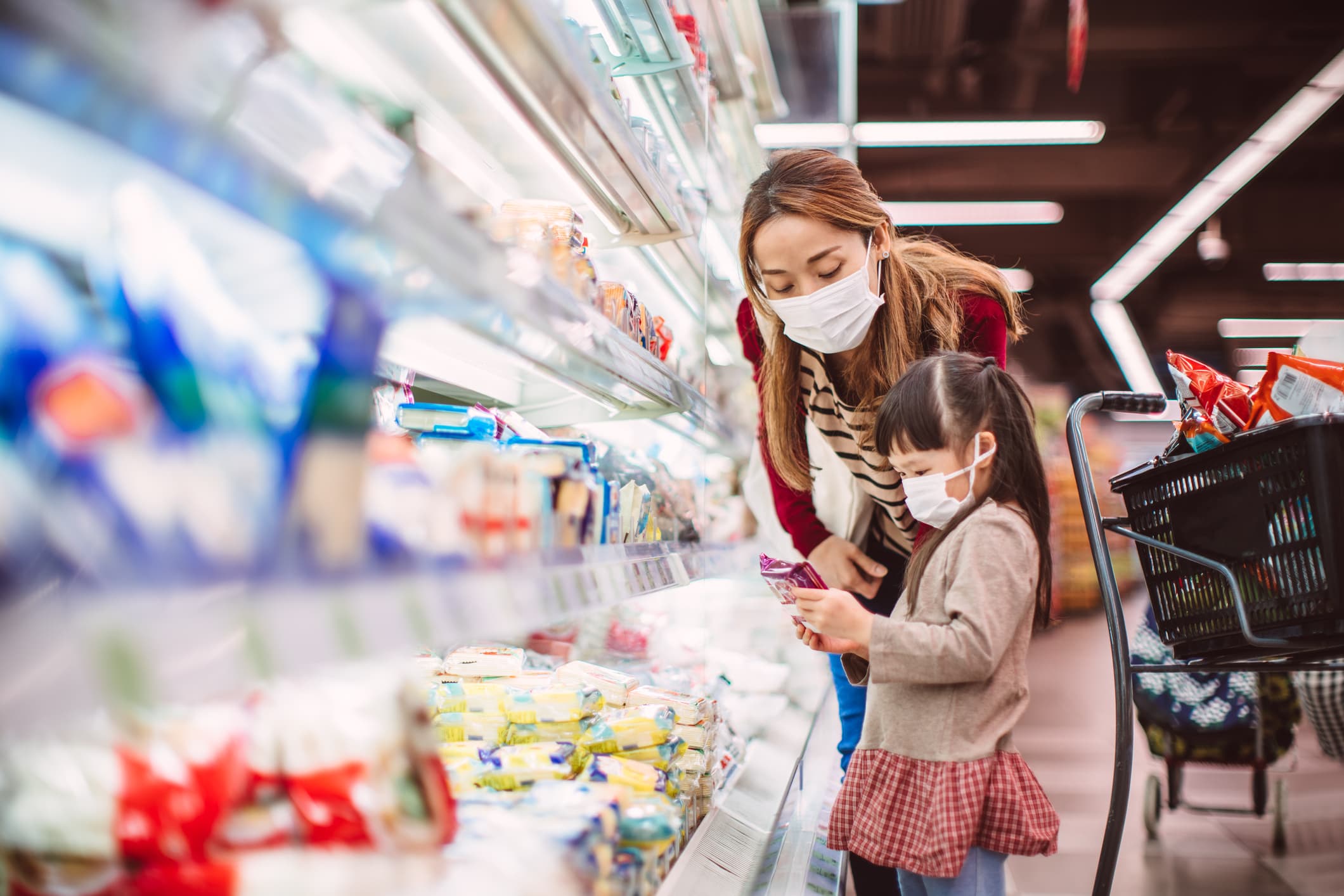Grocery shoppers are trading canned goods and bags of dried beans for specialty chocolate and gourmet pasta sauce as coronavirus cases rise across the country, new research shows.
In the early months of the pandemic, in the spring, Americans filled up their grocery carts with bulk purchases of food and household staples, and grocers raced to restock stripped shelves. In recent weeks, however, consumers have gravitated toward premium purchases such as higher-end coffees, cheeses and frozen entrees instead of value brands or private labels, market research firm IRI said.
Sales of premium and superpremium packaged goods grew by 1.7% at retailers year over year for the 26 weeks ending Oct. 4, according to IRI data. The percentage may sound like a small one, but it is a notable shift in the multibillion-dollar consumer packaged goods industry, where rivals compete at just tenths of a percentage from one another.
That trend has continued in recent weeks, and it’s consistent across households of all income levels, said Krishnakumar Davey, president of strategic analytics at IRI.
Davey said people have turned to specialty items to break out of tiresome routines and try to turn even weeknight dinners into an experience. Plus, he said, people are spending their money in different ways as they can’t travel, go out to dinner with a group of friends or to the movies.
“People don’t have that many more avenues to spend, so they do have some money and they are feeding themselves well,” he said.
He said it’s a relatable feeling to treat yourself to little luxuries during a stressful time.
“Everybody wants an indulgence,” he said. “I know on some hard days, I’ll go indulge myself with a nice cup of ice cream.”
Nearly every state across the country is reporting a rise in Covid-19 cases and hospitalizations. The U.S. reported over 143,231 new cases on Wednesday, setting a new record one-day spike, according to a CNBC analysis of data compiled by Johns Hopkins University. That brings the seven-day average to more than 127,400, up nearly 35% compared with a week ago.
More than 65,300 people are currently hospitalized with Covid-19 in the U.S., more than at any other point in the pandemic.
The significant increase in cases has led to grim decisions that hark back to the most challenging and deadly weeks of the spring outbreak. In El Paso, freezer trucks have been brought in to serve as temporary morgues. In North Dakota, fear of staffing shortages inspired the governor to change the rules to allow asymptomatic coronavirus-positive health-care workers to continue to work in Covid units.
The rising number of cases has raised concerns among some grocers that shoppers may “panic buy” as they did in the spring. Some grocers have already taken steps to try to prevent stockpiling.
Kroger, the country’s largest supermarket operator, added limits for some household purchases online and in stores. Starting last week, customers are limited to buying up to two of certain items, including toilet paper, paper towels, disinfecting wipes and hand soap. At Texas grocer H-E-B,also, customers can buy no more than two of certain items at a time, including disinfecting sprays and packs of brisket.
In a typical recession, IRI’s research has found, Americans tend to trade down to less expensive brands such as grocers’ private labels, buy smaller packages of an item and treat themselves in smaller ways — like buying a box of chocolate truffles instead of a Hershey’s bar.
However, Davey said recent shopping data has shown only the third tendency. He said households — even those with lower incomes — may feel comfortable spending more on premium items, since they’ve cut spending in other categories as they mostly stay at home.
He said one pattern is repeating itself from the early months of the pandemic, however: People are buying slightly more paper towels and toilet paper.
